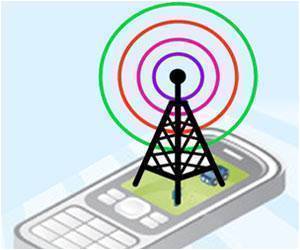-
Regular mobile phone use is associated with a 4% increased risk of cardiovascular diseases - The risk is higher for smokers and diabetics, with significant interactions noted
- Factors like sleep patterns and psychological distress mediate the risk of CVD linked to mobile phone use
Recent research has revealed a concerning link between regular mobile phone use and an increased risk of cardiovascular diseases (CVD). This study highlights how mobile phone usage, particularly in individuals who smoke or have diabetes, can exacerbate the risk of developing CVD (1✔ ✔Trusted Source
Regular Mobile Phone Use and Incident Cardiovascular Diseases: Mediating Effects of Sleep Patterns, Psychological Distress, and Neuroticism
).
In a comprehensive study with a median follow-up period of 12.3 years, researchers tracked the health outcomes of 56,181 individuals. The primary aim was to investigate the association between regular mobile phone use and the incidence of cardiovascular diseases.
Advertisement
Findings from the Link Between Mobile Phone Use and Cardiovascular Diseases
Increased Risk of Cardiovascular Diseases
- Hazard Ratio for Incident CVD: The study found that regular mobile phone users had a hazard ratio of 1.04 for incident CVD compared to non-regular users. This means that regular users had a 4% higher risk of developing CVD. The 95% confidence interval for this ratio was 1.02-1.06, indicating that the association is statistically significant.
Increased Carotid Intima-Media Thickness (CIMT)
- Odds Ratio for Increased CIMT: Regular mobile phone users also had an odds ratio of 1.11 for increased CIMT, with a 95% confidence interval of 1.04-1.18. CIMT is a marker for atherosclerosis, a condition that can lead to cardiovascular diseases.
Advertisement
Mobile Phone Use and Its Interaction with Lifestyle Factors
The study also explored how mobile phone usage interacts with other risk factors, particularly smoking and diabetes.
Smokers: The risk of incident CVD was significantly higher in regular mobile phone users who were also current smokers. The interaction between mobile phone use and smoking was statistically significant (P for interaction = 0.001), suggesting that smoking exacerbates the adverse effects of mobile phone use on cardiovascular health.
Diabetics: Individuals with diabetes who were regular mobile phone users also faced an increased risk of CVD. The interaction was significant (P for interaction = 0.037), indicating that diabetes may heighten the risk associated with mobile phone use.
Advertisement
Mobile Phone Use and Its Mediating Factors
The study also investigated how certain factors mediate the relationship between mobile phone usage and CVD:
Sleep Patterns: Approximately 5.11% of the relationship between weekly mobile phone usage time and incident CVD was mediated by changes in sleep patterns. Poor sleep quality or inadequate sleep due to mobile phone use may contribute to cardiovascular risk.
Psychological Distress: Psychological distress accounted for 11.5% of the relationship. Regular mobile phone use may contribute to increased stress or anxiety, which is known to impact cardiovascular health negatively.
Neuroticism: Neuroticism, or a tendency towards negative emotions, mediated 2.25% of the relationship. Higher neuroticism could amplify the stress-related effects of mobile phone use on cardiovascular health.
The findings from this study underscore the importance of being mindful of mobile phone use, especially for individuals with existing risk factors such as smoking or diabetes. While the risk increase associated with mobile phone use may seem modest, it is significant when combined with other risk factors.
For Smokers and Diabetics, it’s crucial for individuals who smoke or have diabetes to be aware of the potential added risk from regular mobile phone use. Reducing mobile phone usage and addressing other risk factors could be beneficial.
Generally, Limiting excessive mobile phone use, especially before bedtime, could help mitigate some of the adverse effects related to sleep and stress.
This research provides valuable insights into the potential health risks associated with regular mobile phone use, particularly when combined with smoking or diabetes. By understanding these associations and taking preventive measures, individuals can better manage their cardiovascular health and reduce their risk of developing related diseases.
Reference:
- Regular Mobile Phone Use and Incident Cardiovascular Diseases: Mediating Effects of Sleep Patterns, Psychological Distress, and Neuroticism – (https://onlinecjc.ca/article/S0828-282X(24)00437-9/abstract)
Source-Medindia










